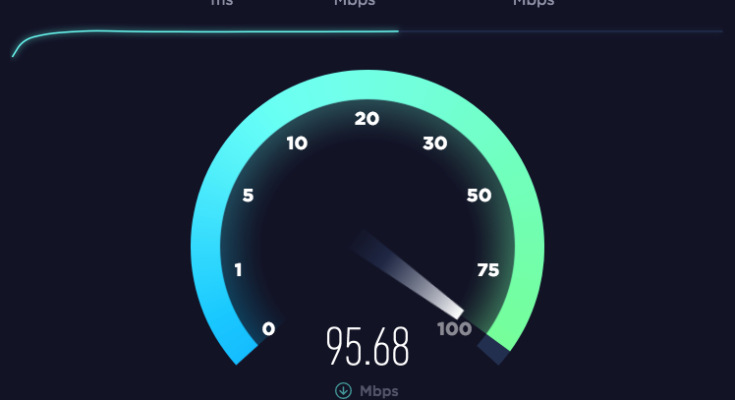In our hyper-connected world, a reliable internet connection is more than just a luxury—it’s essential. Whether you’re streaming your favorite series, working from home, or gaming with friends, the speed of your internet can make all the difference. But how do you know if you’re getting the speeds promised by your service provider? That’s where understanding and checking your internet speed comes in. With advancements on the horizon for 2024, it’s crucial to stay informed about what affects connectivity and how to enhance it. Dive in as we explore everything you need to know about internet speed and ensure that you’re always surfing at peak performance.
Understanding Internet Speed and Its Importance
Internet speed refers to how fast data travels between your device and the internet. It’s typically measured in megabits per second (Mbps). This number plays a crucial role in determining your online experience.
A higher speed means quicker downloads, smoother streaming, and responsive gaming. Imagine buffering videos or lagging games—frustrating, right? Understanding this metric helps you make informed choices about your internet plan.
Speed impacts various activities differently. For video calls, low latency is key; for downloading large files, high download speeds matter most. Knowing these distinctions helps tailor your connection needs.
As more devices connect to the internet at home, understanding bandwidth becomes essential too. The more devices sharing a network, the more potential slowdown occurs without adequate speed.
Factors That Affect Internet Speed
Several factors can impact your internet speed. One of the most significant is bandwidth, which determines how much data can be transmitted at once. Higher bandwidth means faster speeds, especially when multiple devices are connected.
Network congestion also plays a crucial role. During peak usage times, like evenings or weekends, you might notice slower speeds as more people share the same connection.
Physical distance from your router matters too. The farther away you are, the weaker the signal becomes. Obstacles such as walls and furniture can further degrade connectivity.
Your chosen service provider affects performance as well. Different ISPs offer varying quality of service and infrastructure that influence your experience.
Outdated equipment could slow you down significantly. Using an old router or modem may not support higher-speed plans available today. Upgrading to modern technology often results in improved speeds and reliability.
How to Check Your Internet Speed: Step by Step Guide
Checking your internet speed is a straightforward process. Begin by ensuring that no other devices are using bandwidth. This will give you the most accurate results.
Next, choose a reliable speed test website or app. Popular options include Ookla’s Speedtest and Fast.com. These platforms are user-friendly and provide quick measurements.
Once on the site, simply click the “Go” or “Start” button to begin testing. The tool will measure both your download and upload speeds in real-time.
After the test completes, review the results displayed on your screen. You’ll see numbers indicating how fast data can be downloaded and uploaded from your device to the internet.
For an even better understanding of your connection quality, consider running multiple tests at different times of day for consistency in results.
Tools for Testing Internet Speed
When it comes to checking your internet speed, several tools can make the process simple and efficient. One of the most popular options is Ookla’s Speedtest. This user-friendly platform allows you to quickly measure download and upload speeds, along with latency.
Another great choice is Fast.com by Netflix. It focuses primarily on download speed, providing a straightforward reading in seconds without unnecessary distractions.
If you’re looking for more comprehensive data, consider using Measurement Lab (M-Lab). This tool evaluates various aspects of your connection, helping diagnose potential issues affecting performance.
For gamers or streaming enthusiasts, specialized tools like Pingtest.net offer insights into latency and packet loss—critical metrics that affect online gameplay experience.
Experimenting with different tools can provide a broader understanding of your internet performance. Each one has its unique features that cater to specific needs.
Tips for Improving Your Internet Speed
Improving your internet speed can be simpler than you think. Start by positioning your router in a central location. This helps ensure an even signal throughout your home.
Another effective tip is to limit the number of devices connected at once. Too many users can bog down bandwidth, leading to slower speeds.
Regularly updating firmware on your router also makes a difference. Manufacturers often release updates that enhance performance and security.
Consider using wired connections for devices that require stable connectivity, like gaming consoles or PCs. Ethernet cables deliver faster speeds compared to Wi-Fi.
Talk to your internet service provider about available plans. Sometimes upgrading could give you the boost you need without much hassle.
Importance of Regularly Checking Your Internet Speed
Regularly checking your internet speed is essential for maintaining a smooth online experience. It helps you identify any issues before they become major headaches.
When you test your speed, you’re able to see if you’re getting the service you’ve paid for. If your speeds fall short, it’s time to reach out to your provider or troubleshoot potential problems.
Frequent checks can also reveal fluctuations caused by network congestion or hardware malfunctions. Understanding these patterns empowers you to take action when needed.
Moreover, as technology evolves and more devices connect to the internet, monitoring speeds ensures that all users in a household enjoy optimal performance without disruptions.
Staying proactive about your internet speed allows for better streaming, gaming, and browsing experiences. In today’s digital age, knowing where you stand with connectivity is more crucial than ever.
Future of Internet Speed: What to Expect in 2024
The future of internet speed in 2024 promises exciting advancements. With the rollout of 5G technology, users can expect lightning-fast connectivity. This will enhance mobile browsing and streaming experiences significantly.
Fiber-optic networks are also on the rise. Their capacity to handle massive data loads means that households could see even higher speeds than before. Imagine downloading large files in mere seconds!
Moreover, satellite internet is evolving rapidly. Companies are launching constellations of satellites to provide high-speed access in remote areas. This could finally bridge the digital divide for many.
Artificial intelligence may play a role as well, optimizing network traffic and improving overall performance. Smart algorithms could predict usage patterns and allocate bandwidth more efficiently.
As these technologies converge, we might witness not only faster speeds but also more reliable connections across various devices. The landscape of online activity will transform dramatically as a result.
Conclusion
Checking your internet speed is crucial in today’s digital landscape. With an ever-growing reliance on high-speed connections for work, entertainment, and communication, understanding how to gauge your internet performance can save you from frustration.
Regularly testing your speed ensures that you’re getting the service you pay for and allows you to identify potential issues before they escalate. As technology continues to advance, staying informed about factors affecting your connection will help you keep up with the demands of modern life.
Looking ahead to 2024, we can expect even faster speeds and improved technologies that will further enhance our online experiences. Keeping tabs on your internet speed now prepares you for a future where seamless connectivity becomes even more integral to daily living. Embracing these advancements means you’ll be ready to enjoy all the benefits they bring without missing a beat.



